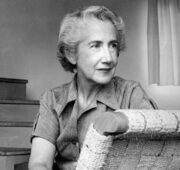The transition from MySpace to Fb was, as the social media scholar danah boyd has argued, a circumstance of digital “white flight. ” “Whites ended up far more possible to leave or choose Facebook,” boyd clarifies.
“The educated had been additional very likely to leave or opt for Fb. Those people from wealthier backgrounds were being much more probably to depart or pick out Facebook. All those from the suburbs ended up a lot more probable to depart or decide on Fb.
“In some perception, this was baked into Facebook’s premise. It started off among higher education learners – in distinct between Harvard pupils, and then college students at other very selective, elite colleges, and then college students at all schools, and so on. It grew out of an first person foundation that was largely rich and white gradually it became associated with the bourgeoisie and MySpace with the proletariat.
- How could i get around going out with just like a woman with handicaps?
- How to attempt dating?
- How do you manage someone who is highly impulsive?
- Might it be acceptable currently an individual with some other employment goals?
- Would it be fine until now a person with different goals about partnership timeframes?
- How vital could it possibly be having much the same political viewpoints into a link?
- How can you get a handle on internet dating a particular person that includes a many kinds of absolutely adore dialect?
A few of the don’ts and do’s of online dating?

Facebook could or might not have been deliberately exploiting these course dynamics, but people dynamics performed a very real function in the site’s advancement. If you question Hinge is the courting application of the privileged, contemplate that it basically ranked economic institutions by the eligibility of their single workers. (Hinge)Hinge, likewise, targets an elite demographic. It is really only obtainable in cities.
What are indications of psychological and mental maturation within sweetheart?
Its consumers are twenty-somethings and almost all went to college or university. “Hinge consumers are ninety https://buyabrideonline.com/italian-brides nine % higher education-educated, and the most common industries include things like banking, consulting, media, and trend,” McGrath suggests. “We not long ago observed 35,000 buyers attended Ivy League educational facilities.
“Classism and racism have often been issues in on-line courting. Christian Rudder, a cofounder of OKCupid, demonstrates in his reserve Dataclysm that in three big conventional dating web pages – OKCupid, Match. com, and DateHookup – black girls are continuously rated decreased than gals of other races.
Buzzfeed’s Anne Helen Petersen set collectively a Tinder simulation in which 799 contributors (albeit non-randomly chosen types) just about every evaluated thirty phony profiles produced making use of stock photos, and observed that people’s swipes depended strongly on the perceived class of the prospective match. ” If a person self-recognized as higher-middle-class and discovered the male profile before him or her as ‘working-course,’ that person swiped ‘yes’ only 13 percent of the time,” Petersen writes. But if they identified the profile as “center-course,” the swipe charge rose to 36 percent.
Hinge has carved out a area of interest as the relationship application of the privileged. Hinge provides nonetheless extra tools for that kind of judging. You can see exactly where possible matches went to school, or the place they labored. Without a doubt, this form of assortative mating – matching folks of the similar socioeconomic class with each other – is embedded into the app’s algorithm.
McLeod advised Boston. com’s Laura Reston the algorithm takes advantage of your earlier selections to predict foreseeable future matches, and in observe your faculty and office, and social network in standard, normally serve as great predictors. “McLeod notes that a Harvard pupil, for illustration, may like other Ivy Leaguers,” Reston writes. “The algorithm would then compose lists that include much more people today from Ivy League institutions. “Obviously, Hinge did not invent this dynamic as Reston notes, seventy one percent of higher education graduates marry other higher education graduates, and sure elite faculties are specifically fantastic at matching up their alumni (above 10 per cent of Dartmouth alums marry other Dartmouth alums).
And the Hinge point sheet frames this element of the algorithm as just a different way in which the app resembles staying set up by a close friend:Think of location up your pickiest mate. Initially, you would feel of all the persons you know who he/she may well like to meet up with. Then you would prioritize those people suggestions primarily based on what you know about your mate (preference for doctors, dislike for lawyers, enjoy for Ivy Leaguers etcetera). Ultimately, above time you would start to learn his/her preferences and refine your tips.
That is precisely how Hinge’s algorithm operates. There’s the “Ivy Leaguers” case in point once more.

















